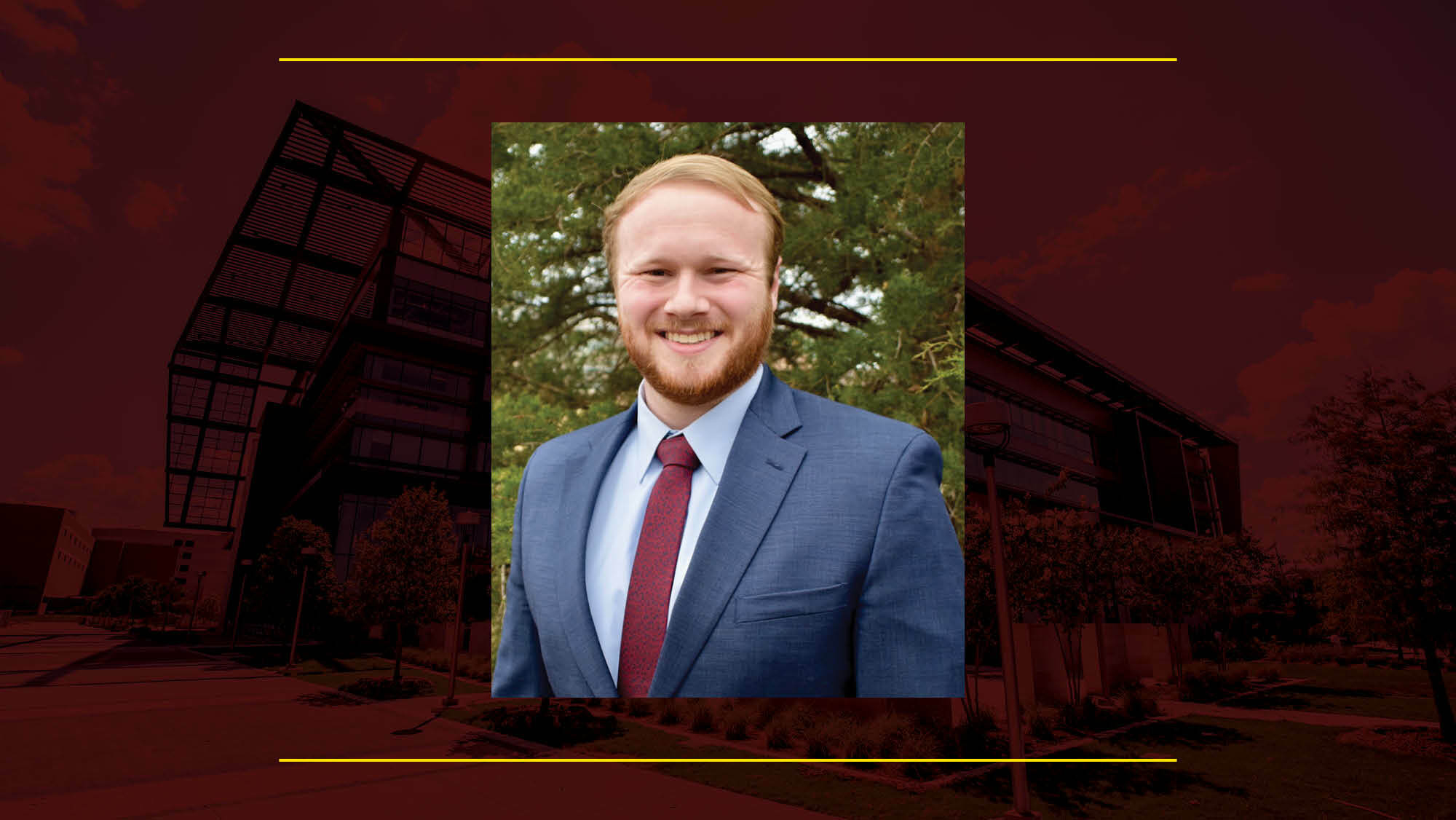
Connor Roddy ’24 was an unusual law student; for the last six years, he was a multi-hyphenate student in the Department of Multidisciplinary Engineering (MTDE) at Texas A&M University.
While he considers himself a part of the undergraduate class of ’22, Roddy graduated from the multidisciplinary EnLaw program with his Bachelor of Science and Juris Doctorate degrees earlier this month. His undergraduate major was interdisciplinary engineering with concentrations in electrical and mechanical engineering.
"I chose to pursue interdisciplinary engineering because I knew I wanted to pursue a career in patent law," said Roddy. "The department's unique EnLaw program enabled me to reach that end goal quicker."
The traditional path to becoming a lawyer typically takes seven years after high school and includes a minimum of four undergraduate years and three years at law school. The EnLaw program is a collaboration between MTDE and the Texas A&M School of Law, which allows students to complete a law degree in only six years.
The department's unique EnLaw program enabled me to reach that end goal quicker.
Roddy spent the program's first three years taking undergraduate engineering courses at Texas A&M's College Station campus. “I really enjoyed getting to be a part of the Texas A&M traditions,” he said. “My first three years allowed me to learn and gain experience in a traditional college environment.” He then began two years of law studies at the Texas A&M School of Law in Fort Worth where he also completed his final year of combined law and engineering courses.
Graduates from the EnLaw program are equipped to practice law in areas requiring an advanced understanding of engineering and technology development processes, such as patents and intellectual property law, environmental law, and workplace health and safety law.
Roddy has always been interested in learning how things work, which led him to choose a career as a patent attorney early on.
"Patent attorneys have the opportunity to work with inventors to understand how their ideas work and then help protect those ideas," he said. "The opportunity to diversify my engineering background will enable me to work in a broader variety of patent matters."
He advises taking a similar path to any students wanting to pursue a career in patent law. "It's so beneficial to diversify your undergraduate studies as much as possible – it helps you become more qualified on a broader range of patent matters," he said.
Roddy will next take the bar exam to become a licensed attorney. He will then join the Intellectual Property group at Baker Botts L.L.P. in Dallas, Texas, where he will practice law as a patent attorney.